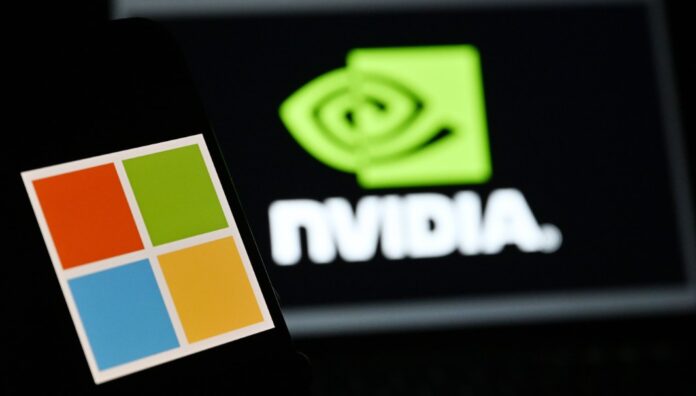The Microsoft UAE AI Deal is making global headlines, and for good reason. With a staggering $15 billion commitment through 2029, Microsoft is not only expanding its AI infrastructure but also redrawing the geopolitical map of technology and power. This move gives the United Arab Emirates unprecedented access to Nvidia’s most advanced AI chips, technology once treated by Washington as strategically sensitive as nuclear material.
Microsoft UAE AI Deal: A Billion-Dollar Bet on the Future
The newly announced Microsoft UAE AI Deal isn’t just a standard partnership, it’s a major shift in how the U.S. manages its technology alliances abroad. For the first time, Microsoft has obtained U.S. export licenses that allow it to ship Nvidia’s cutting-edge AI chips directly to the Emirates, despite long-standing restrictions.
This $15 billion agreement enables Microsoft to construct massive AI data centers across the UAE, turning the region into one of the most advanced AI infrastructure hubs outside the United States.
According to reports, this latest export approval includes around 60,400 Nvidia A100 chips, part of the GB300 GPU series, the same hardware used to train powerful AI models like ChatGPT and Anthropic’s Claude. These chips will power projects from OpenAI, Anthropic, and even Microsoft’s own Copilot platform.
The Strategic Vision Behind Microsoft’s UAE Expansion
At its core, the Microsoft UAE AI Deal is about more than data centers. It represents a calculated bet by Washington and Microsoft on which nations will lead the next wave of artificial intelligence development.
By helping the UAE build its AI infrastructure, Microsoft gains both a strategic partner and a launchpad for its global AI operations. In turn, the UAE positions itself as the AI capital of the Middle East, challenging Saudi Arabia’s growing technological ambitions.
This partnership also strengthens the U.S.–UAE relationship at a time when global AI influence is becoming a measure of political and economic power.
Geopolitical Tensions Behind the Microsoft UAE AI Deal
While this partnership marks a milestone in AI development, it also comes with complex geopolitical implications. U.S. lawmakers, including House China Committee Chairman John Moolenaar, have raised concerns over the UAE’s ties to Chinese tech firms. The fear is that advanced American AI chips could potentially make their way into China through indirect routes.
A key figure in this controversy is G42, an Abu Dhabi-based AI company that serves as Microsoft’s main UAE partner. G42 has faced scrutiny over its historic links with China, prompting strict U.S. cybersecurity and national security requirements to be enforced as part of the deal.
In response, G42 has been actively strengthening its collaboration with American partners to prove compliance with U.S. oversight. For Microsoft, adhering to these conditions was essential to secure the export license that makes this groundbreaking partnership possible.
Middle Eastern Rivalry in AI: UAE vs. Saudi Arabia
The Microsoft UAE AI Deal also adds fuel to the ongoing race between Saudi Arabia and the UAE to dominate artificial intelligence in the Middle East.
Saudi Arabia has already announced plans to develop 2,200 megawatts of future data center capacity — more than four times the UAE’s current 500 megawatts. The kingdom also launched a $40 billion AI investment fund last year, alongside Amazon’s $5.3 billion pledge for regional cloud infrastructure.
However, the UAE’s ability to access Nvidia’s top-tier chips through Microsoft may give it a crucial advantage in the short term. With these GPUs, the UAE can host and train AI models at a level of sophistication few other nations outside the U.S. and China can match.
Economic and Strategic Exchange
Beyond technology, this deal reflects a larger economic exchange between the U.S. and the UAE. As part of its global partnership, the Emirates has pledged to invest $1.4 trillion in U.S. energy and AI projects, cementing its role as a preferred ally in Washington’s new tech diplomacy.
This collaboration offers benefits on both sides:
-
The UAE gains exclusive access to Nvidia’s high-performance AI chips, something Beijing currently cannot achieve due to export bans.
-
The U.S. strengthens its influence in the Gulf, ensuring that key allies, not rivals, shape the AI future.
How the Microsoft UAE AI Deal Changes the Global Tech Map
The implications of the Microsoft UAE AI Deal go far beyond the Middle East. It signals a shift in U.S. policy from technological isolation to strategic partnership-based expansion.
By selectively granting access to critical AI hardware, Washington is essentially deciding which nations are allowed to join the elite club of AI superpowers. The UAE, through its collaboration with Microsoft, is now part of that group — a status that could transform its economy, military, and education systems in the years to come.
This deal also opens doors for AI startups and developers in the region to tap into next-generation computing power, fueling innovation across sectors such as healthcare, energy, and finance.

Security, Oversight, and Compliance
To make this deal possible, Microsoft had to agree to strict national security and cybersecurity conditions, ensuring that no data or technology leaks occur.
Every AI data center built under the agreement will operate under U.S. supervision, and the chips themselves are expected to include built-in safeguards to prevent unauthorized access or exports.
This new level of oversight demonstrates how high the stakes are in the global race for AI supremacy, and how the Microsoft UAE AI Deal is setting a precedent for future international AI collaborations.
A Defining Moment for Global AI Leadership
Ultimately, the Microsoft UAE AI Deal is about more than chips or cloud capacity, it’s about influence. By extending access to Nvidia’s most advanced AI technology, Washington is repositioning its allies in the digital era and redefining what global AI leadership looks like.
As billions flow into data centers and AI infrastructure, the UAE stands on the brink of becoming a central hub for AI innovation and experimentation. Whether this move sparks competition or cooperation across the region remains to be seen, but one thing is clear: Microsoft’s $15 billion bet is reshaping the future of artificial intelligence.


